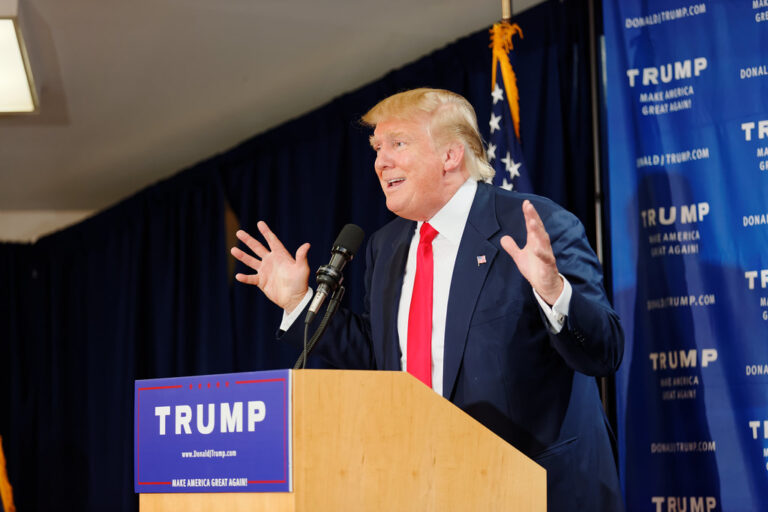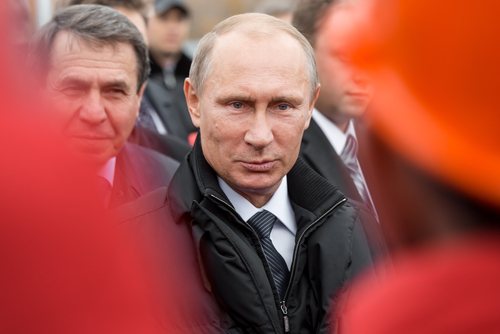Key Takeaways:
- Germany’s elections show a dramatic shift in politics, with the far-right AfD gaining significant ground.
- Public frustration with migration and crime is driving support for parties promising stricter controls.
- Europe faces growing challenges as citizens demand change while leaders struggle to address concerns.
- The continent’s future hangs in balance as populist movements rise and traditional parties resist.
Europe’s Growing Crisis: A Continent at a Crossroads
Europe, once a beacon of culture, prosperity, and democracy, is grappling with unprecedented challenges. From skyrocketing migration to rising crime, the continent is seeing a dramatic shift in its political landscape. The recent German elections highlighted these struggles, as voters turned to parties promising tougher immigration policies and a return to traditional values. But Germany is not alone—similar tensions are playing out across Europe, raising questions about the continent’s future.
Germany’s Election Shock: Far-Right Gains Momentum
Germany’s recent parliamentary elections sent shockwaves across Europe. The ruling Social Democrats suffered a crushing defeat, winning just 16.4% of the vote. Chancellor Olaf Scholz is now on his way out, marking the end of an era. The Christian Democrats, led by Friedrich Merz, emerged as the largest party with 28.5% of the vote. However, this wasn’t enough to secure a majority, forcing them to form a coalition.
The real story, though, was the Alternative for Germany (AfD) party. Despite being labeled “far-right,” AfD came in second with over 20% of the vote. Its platform revolves around making Germany safer and stricter on immigration. This isn’t surprising, given the mounting frustration among Germans over rising crime and the influx of migrants from the Middle East and North Africa.
Recent events have only intensified these concerns. A Saudi immigrant drove a car into a Christmas market in Magdeburg, killing six and injuring nearly 300. Another incident saw a toddler stabbed to death by an immigrant in Aschaffenburg, along with a Good Samaritan who tried to save the child. Days before the election, an Afghan national rammed his vehicle into a crowd in Munich, and a Syrian refugee stabbed a tourist at Berlin’s Holocaust Memorial while shouting anti-Semitic threats.
Despite these alarming events, Christian Democrat leader Friedrich Merz has refused to partner with AfD. Instead, he is considering a coalition with the defeated Social Democrats, whose policies voters just rejected. This move has left many Germans wondering if their voices are being ignored.
A Continent in Crisis: Europe’s Common Struggles
Germany’s situation is not unique. Across Europe, citizens are growing frustrated with unchecked migration, rising crime, and political leaders who seem out of touch.
In the UK, voters demanded change with Brexit in 2016, seeking more control over their borders and laws. Yet, successive governments have failed to deliver meaningful reform. Prime Minister Keir Starmer, with a soaring disapproval rate of 61%, is accused of ignoring public concerns. His government is criticized for failing to tackle mass migration and for targeting citizens who speak out against it.
France faces similar challenges. Marine Le Pen’s National Rally party, which campaigned on curbing migration and restoring order, made significant gains in recent elections. However, President Emmanuel Macron’s centrist coalition and left-wing parties banded together to block Le Pen’s path to power. This move, while politically convenient, has only deepened public frustration.
Italy, too, is struggling. Giorgia Meloni’s Brothers of Italy party won the 2022 elections on a platform of stricter immigration controls. However, her efforts to reform the system have been blocked by activist judges and EU regulations. The European Court of Justice is now considering whether EU laws override national immigration policies. In a surprising twist, the European Commission recently backed Meloni’s position, signaling that Brussels may finally be listening to member states’ concerns.
The Bigger Picture: Europe’s Fight for Survival
Europe’s problems go beyond migration. The continent is suffocating under climate change policies that stifle economic growth, energy production, and agriculture. “Net zero” targets and ambitious projects like “15-minute cities” are becoming flashpoints for public anger.
Meanwhile, violence and crime are on the rise, with foreigners making up a disproportionately large share of offenders. In Germany, foreigners account for 15% of the population but 41% of crimes. High-profile attacks, like the ones mentioned earlier, have shattered public confidence in the government’s ability to protect its citizens.
The rise of populist parties like AfD, National Rally, and Brothers of Italy reflects a deeper frustration. Europeans feel their leaders are more focused on globalist agendas than on addressing the everyday concerns of their citizens.
The Road Ahead: Can Europe Turn the Tide?
The outcomes of these struggles will shape Europe’s future. Will populist parties manage to implement the changes voters demand? Or will centrist leaders continue to cling to power, ignoring the growing anger of their citizens?
One thing is clear: Europe cannot continue down its current path. The continent is slowing destroying itself, importing millions of people from cultures with values that clash with Western traditions. Its leaders must confront the reality of the migration crisis, the skyrocketing crime rates, and the political paralysis that prevents meaningful reform.
As the situation in Germany shows, voters are willing to turn to parties once deemed fringe if traditional leaders fail to act. But even when populist parties win, they often face resistance from courts, bureaucracies, and EU institutions.
The European Commission’s recent support for Italy’s migration reforms offers a glimmer of hope. It suggests that even the EU’s top officials may be starting to recognize the urgency of the crisis. But it’s just one step in a long journey.
Europe’s future will depend on whether its leaders can find the courage to listen to their citizens and take bold action. If they fail, the continent risks becoming a shadow of itself, devoid of the vibrancy and prosperity that once made it a beacon of hope.
The clock is ticking. Europe’s leaders must act now—or risk losing the trust of their people forever.










